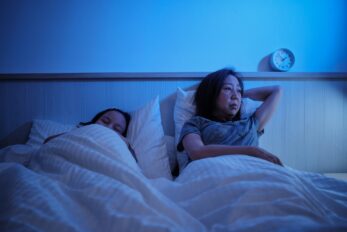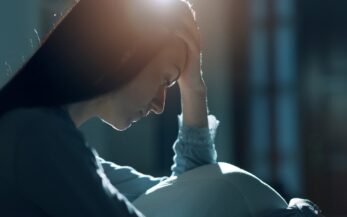Snoring is a common bedroom complaint, but for many men, another issue is quietly creeping in: erectile dysfunction (ED). While most people wouldn’t think to connect interrupted breathing during sleep with problems in the bedroom, the science says otherwise. If you’re experiencing both sleep troubles and sexual dysfunction, it might not be a coincidence.
What Is Obstructive Sleep Apnea (OSA)?
OSA is a sleep disorder where the upper airway repeatedly collapses during sleep, causing pauses in breathing. These pauses can last 10 seconds or longer and happen dozens or even hundreds of times per night. Most people with OSA don’t remember these interruptions, but their body certainly does.
Common symptoms of OSA include:
- Loud snoring
- Daytime fatigue
- Morning headaches
- Trouble concentrating
- Mood changes or irritability
What Is Erectile Dysfunction (ED)?
ED is the consistent inability to get or maintain an erection. While it’s normal to experience occasional issues, stress, fatigue, or too much alcohol can all be culprits, ongoing difficulties may indicate an underlying medical condition.
So… What’s the Link Between OSA and ED?
More than just bad luck or aging, research shows that there’s a strong association between obstructive sleep apnea and erectile dysfunction.
Here’s how OSA may contribute to ED:
1. Oxygen Deprivation
During apneic events, oxygen levels drop. Over time, these dips in oxygen can damage blood vessels and reduce blood flow, including to areas that rely on healthy circulation. No oxygen=no action.
2. Hormonal Disruption
Sleep, particularly deep, restorative sleep, is critical for testosterone production. Men with untreated OSA often have lower testosterone levels, which can contribute to decreased libido and erectile function.
3. Fragmented Sleep
You may not be fully waking up, but your brain is on high alert every time you stop breathing. Poor sleep quality leads to daytime fatigue, decreased energy, and reduced sexual desire—not exactly a recipe for romance.
4. Cardiovascular Risk
OSA and ED share many of the same risk factors: high blood pressure, diabetes, obesity, and heart disease. In fact, ED is often considered an early warning sign of cardiovascular problems, and so is sleep apnea.
Is There Evidence?
Yes, strong and growing. Studies suggest that a significant number of men with obstructive sleep apnea also experience erectile dysfunction, with estimates ranging from nearly half to over three-quarters. Canadian researchers have identified OSA as an independent risk factor for ED, likely due to the effects of disrupted oxygen levels, hormonal imbalance, and cardiovascular strain.
Can Treating Sleep Apnea Help ED?
In many cases, yes. Many men report improvements in sexual function after starting treatment for sleep apnea.
Treatment options for OSA include:
- CPAP therapy: Continuous Positive Airway Pressure keeps the airway open during sleep and is the gold standard for moderate to severe OSA.
- Lifestyle changes: Weight loss, quitting smoking, and reducing alcohol intake can improve both OSA and ED.
- Oral appliances: For those with mild OSA, dental devices can help keep the airway open.
When Should You Talk to Someone?
If you’re:
- Experiencing ongoing erectile difficulties
- Snoring loudly or waking up feeling unrested
- Feeling tired during the day even after a full night’s sleep
… it’s time to speak up.
It may feel uncomfortable, but remember: these are common issues with treatable causes. A sleep study could uncover something that helps both your sleep and your sexual health.
Final Thoughts: Two Birds, One CPAP
Sleep apnea and erectile dysfunction may seem like separate problems, but in many cases, they’re connected by the same underlying issues—poor oxygenation, hormonal changes, and disrupted sleep.
The good news? Addressing one may help with the other. So if your love life is lagging and your sleep is suffering, it might be time to investigate what’s happening when the lights go out.
Don’t snooze on this. Book a sleep consultation today!
P.S. — What about women?
While this blog focused on men, women with sleep apnea aren’t immune to its effects on sexual health. In fact, disrupted sleep and low oxygen levels can also impact desire, arousal, and overall sexual wellbeing in women. We’ll cover that in more detail in an upcoming blog—stay tuned!






